Phonics worksheets activities for 3-Year-Olds
12 filtered results
-
From - To
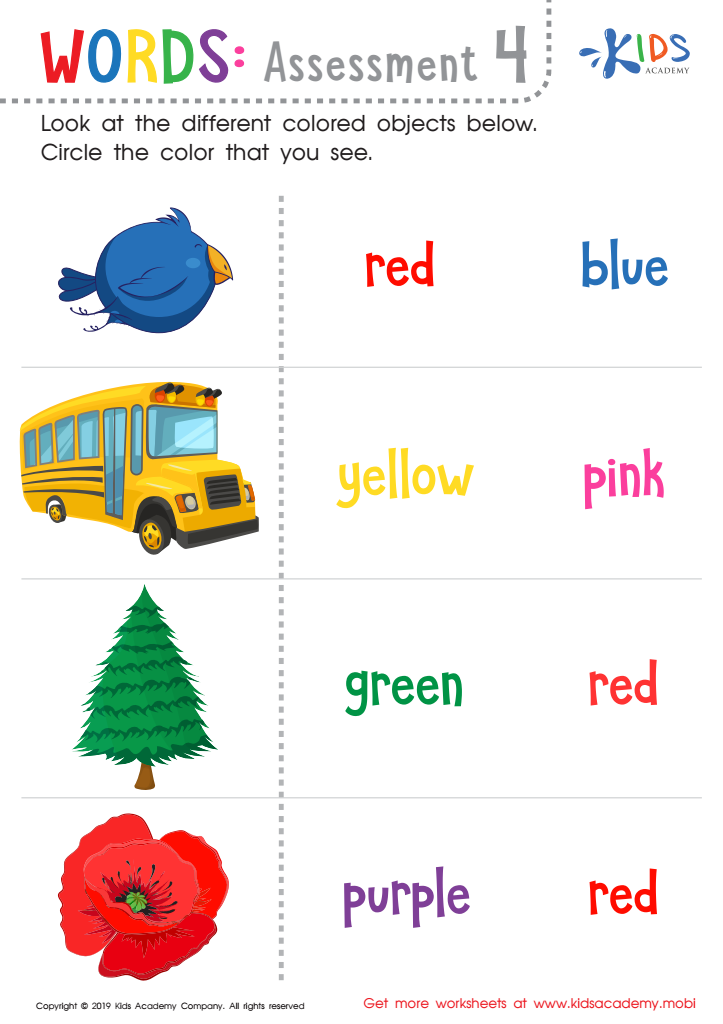

Words: Assessment 4 Worksheet
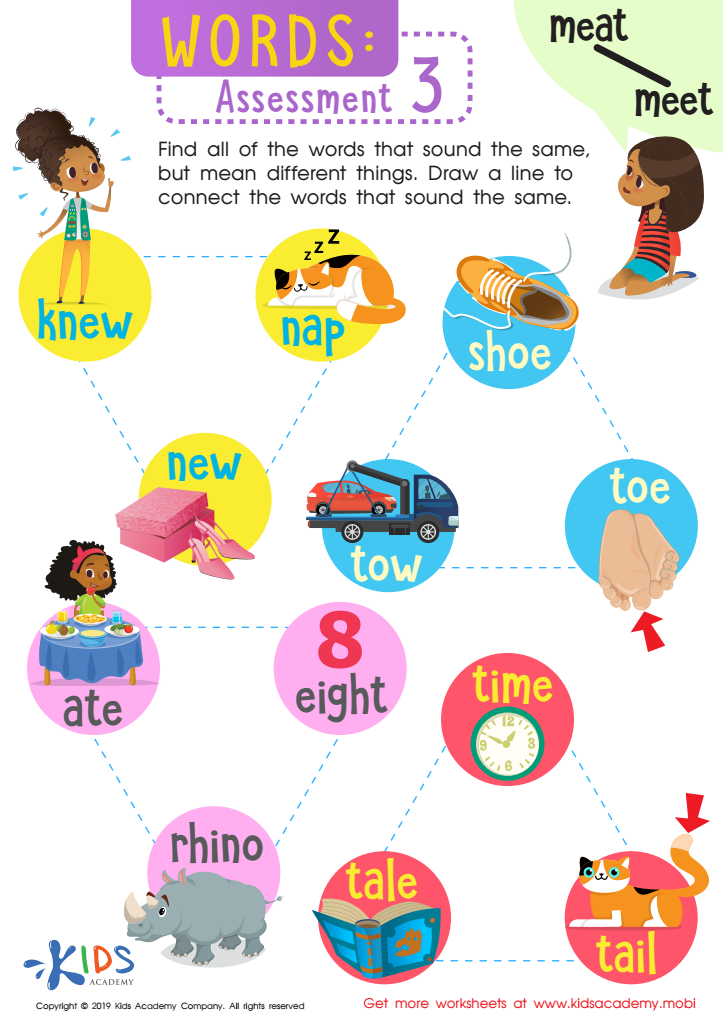

Words: Asessment 3 Worksheet
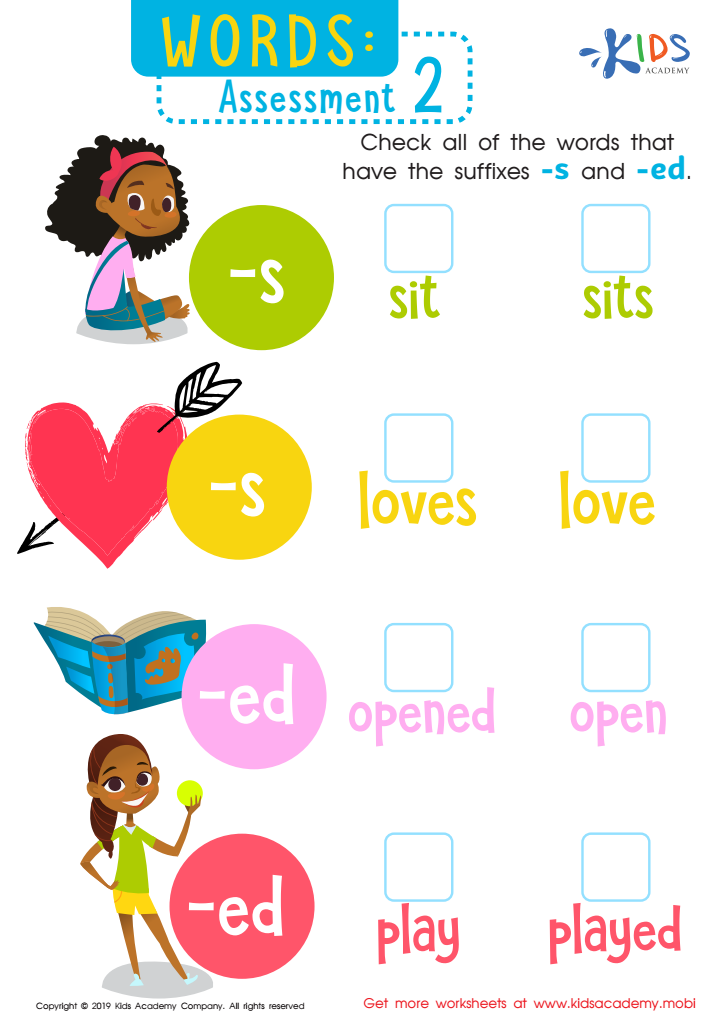

Words: Assessment 2 Worksheet
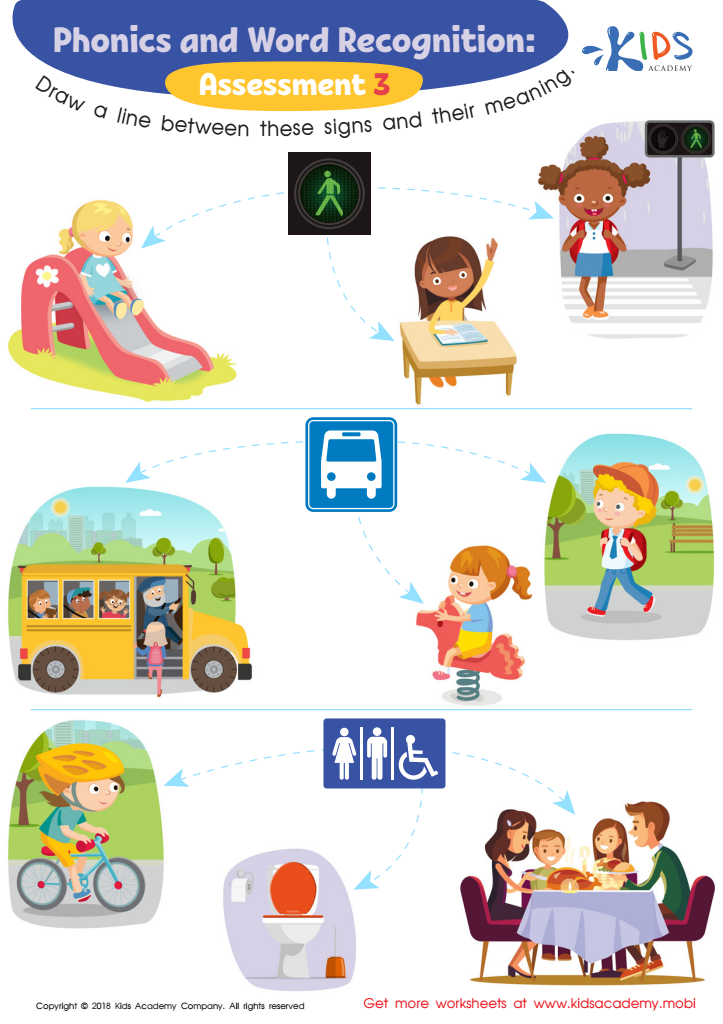

Phonological Awareness: Assessment 3 ELA Worksheet
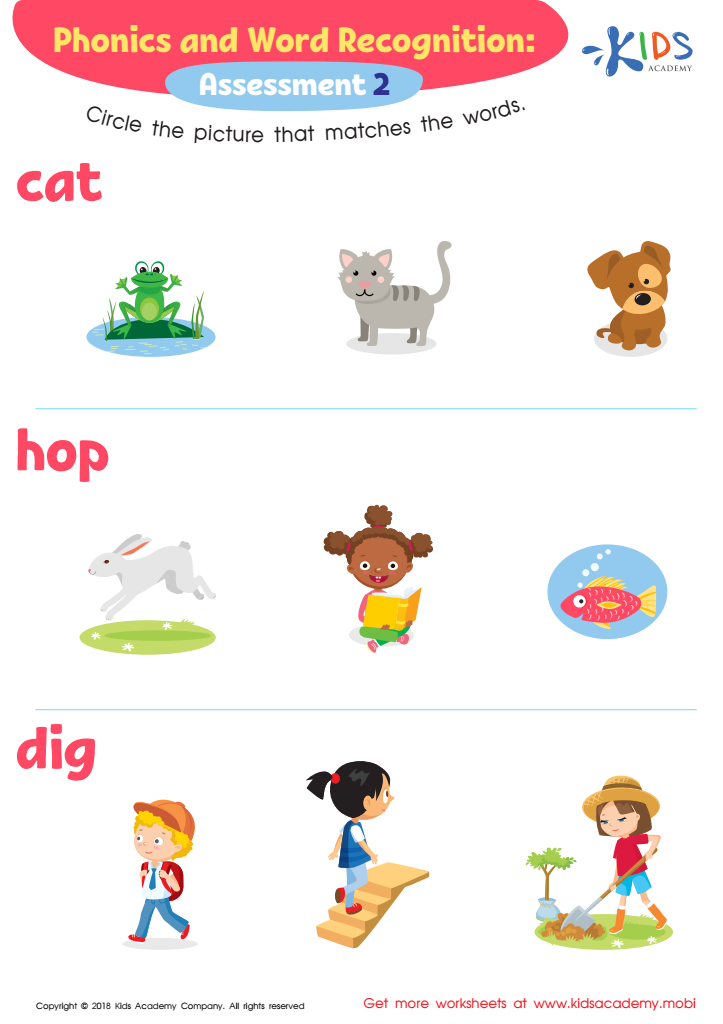

Phonological Awareness: Assessment 2 ELA Worksheet


Phonics and Word Recognition: Assessment 1 ELA Worksheet
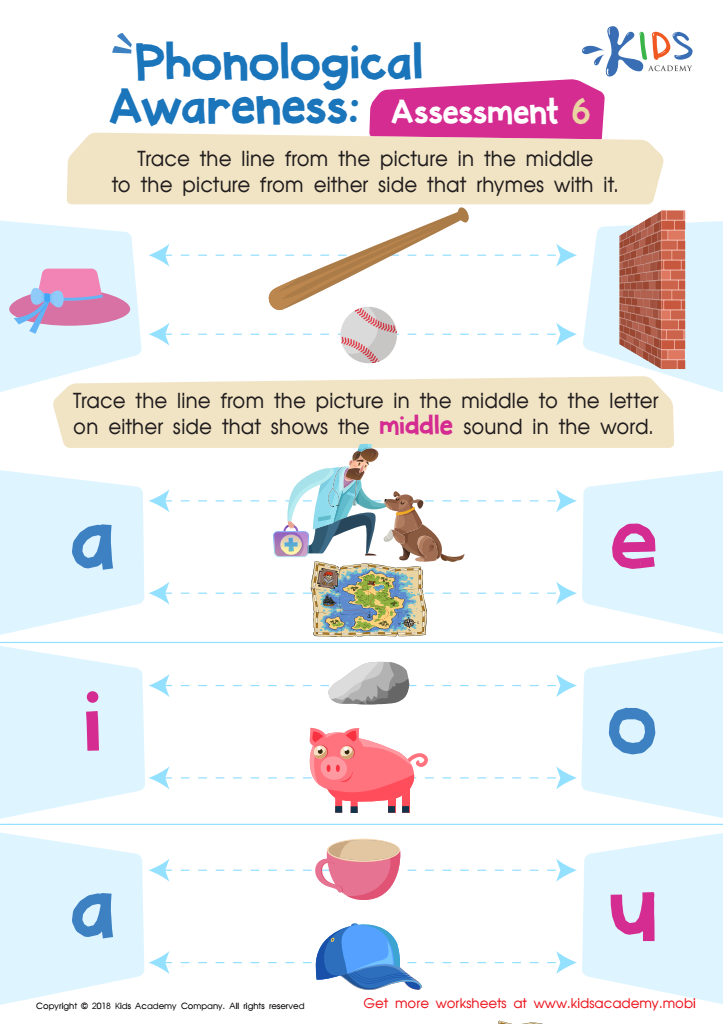

Phonological Awareness: Assessment 6 Worksheet
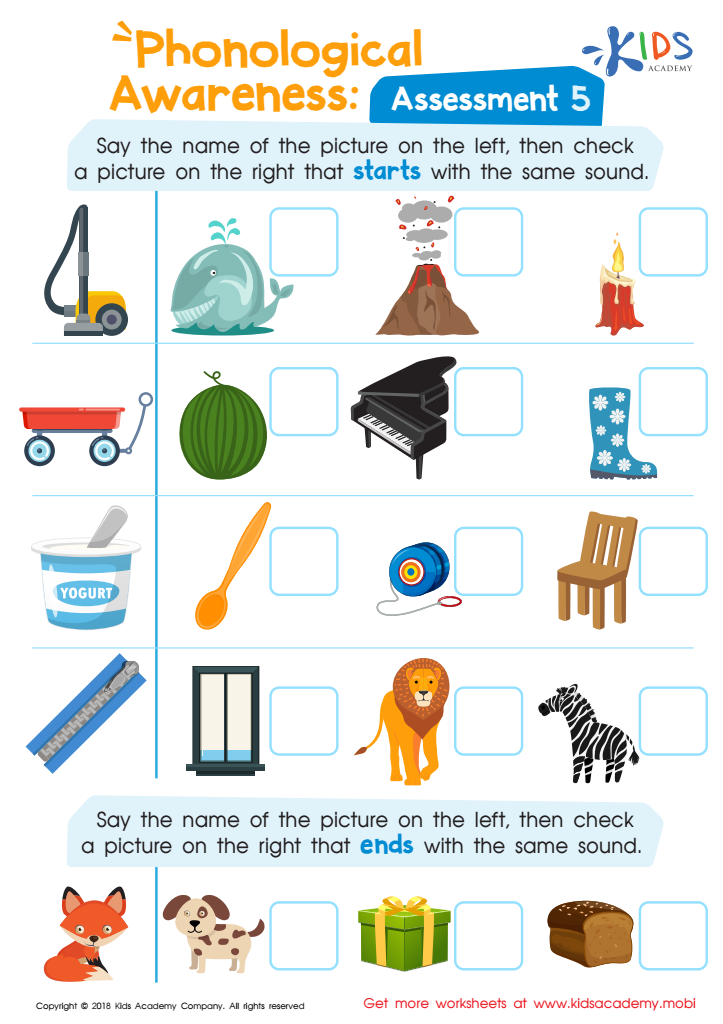

Phonological Awareness: Assessment 5 Worksheet
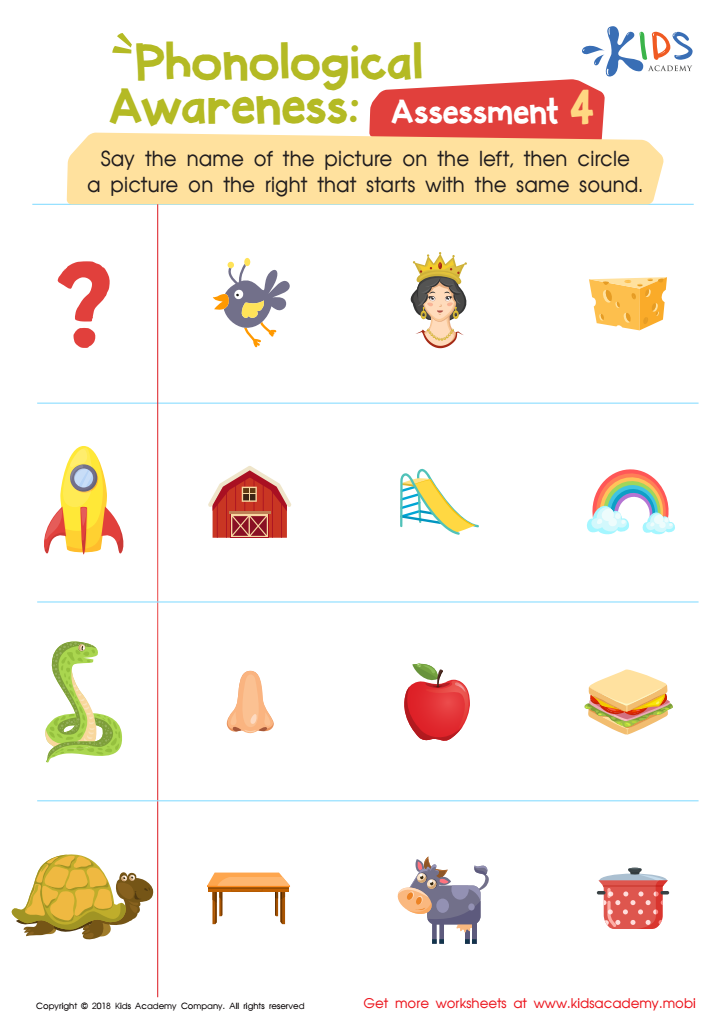

Phonological Awareness: Assessment 4 Worksheet
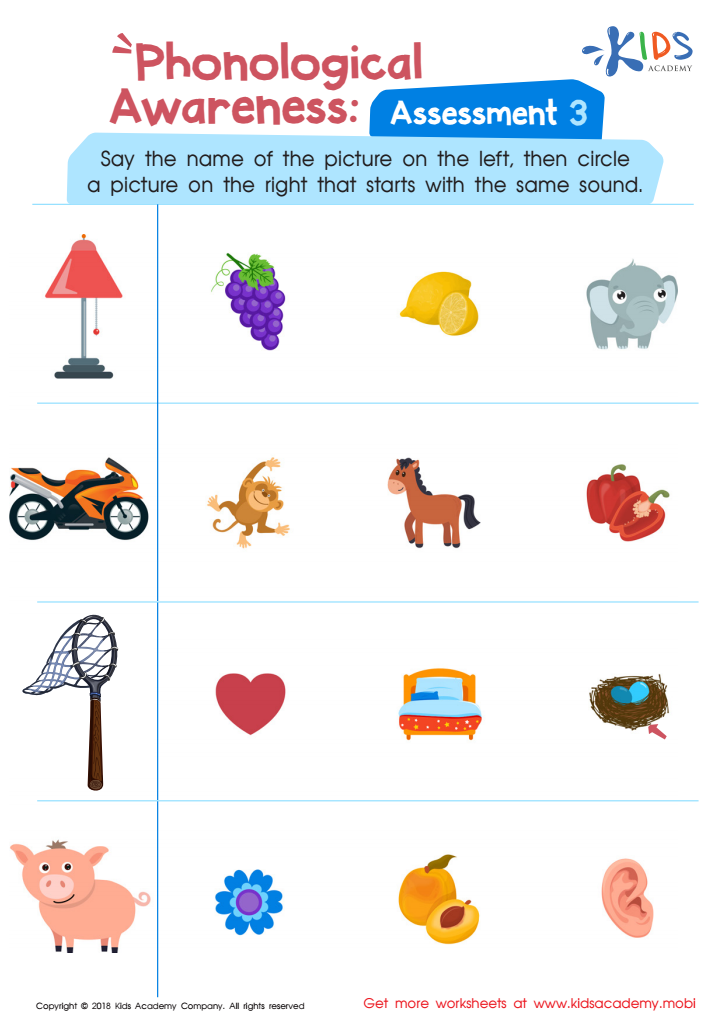

Phonological Awareness: Assessment 3 Worksheet
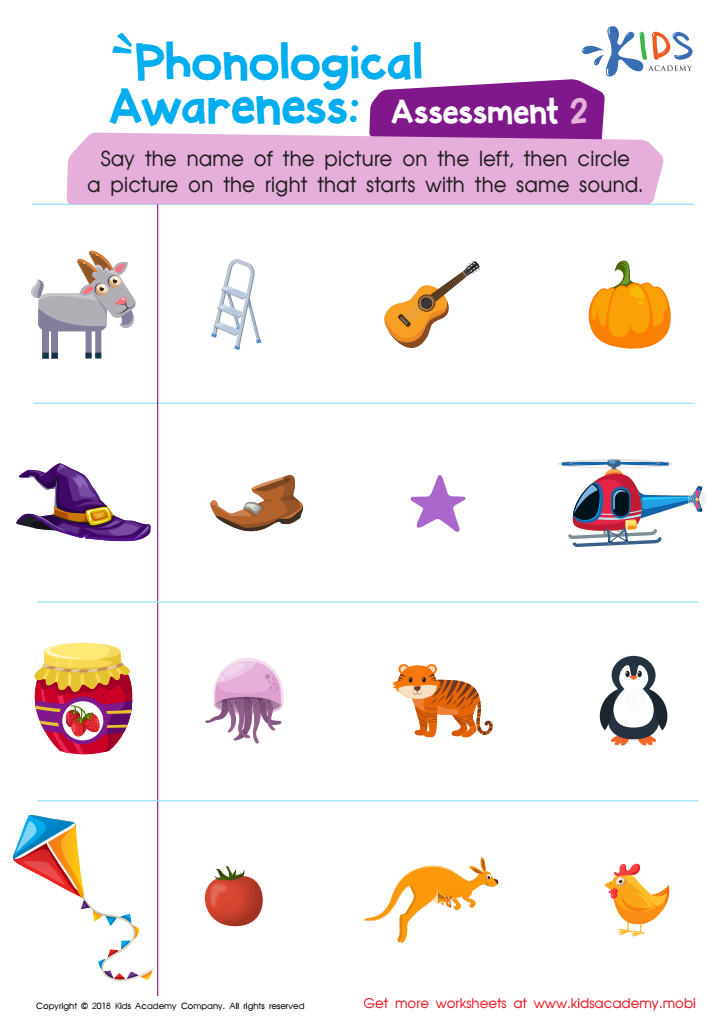

Phonological Awareness: Assessment 2 Worksheet


Phonological Awareness: Assessment 1 Worksheet
Phonics worksheets activities are an invaluable tool in the foundational stages of reading education. By blending visual cues with auditory learning, these activities cater to a variety of learning styles, making phonics an accessible entry point into the world of literacy for young learners. Phonics instruction, grounded in recognizing and understanding the relationship between letters and sounds, is crucial for developing reading fluency and comprehension. Here’s why phonics worksheets activities stand out in teaching this essential skill.
Firstly, phonics worksheets activities offer structured learning. They break down the complex system of English phonetics into manageable chunks, allowing children to tackle one sound or letter combination at a time. This step-by-step approach builds confidence as learners see their progress through each worksheet, fostering a positive learning experience.
Secondly, these activities provide immediate, tangible practice. Phonics is a skill that benefits greatly from repetition and active engagement. Worksheets offer a hands-on opportunity for students to apply what they’ve learned in a focused setting, reinforcing their understanding and retention of phonetic rules.
Moreover, phonics worksheets activities are incredibly versatile. They can be tailored to suit a range of ability levels, ensuring that every child receives support that matches their current understanding and challenges them appropriately. Whether it’s matching letters to sounds, completing words, or reading simple sentences, there’s a worksheet activity designed to meet a variety of educational needs.
Another significant advantage is the inclusion of visual aids. Many children are visual learners, and phonics worksheets often include pictures and illustrations that help contextualize words and sounds. This not only makes the learning process more engaging but also aids in memory retention by associating sounds with specific visual cues.
Finally, phonics worksheets activities promote independent learning. While initial instruction might happen in a group setting, worksheets allow children to apply what they've learned on their own, at their own pace. This independence in learning fosters a sense of achievement and responsibility towards their educational journey.
In conclusion, phonics worksheets activities are a cornerstone of effective literacy instruction. They provide a structured, engaging, and versatile approach to learning the fundamentals of reading, making them an indispensable resource in the education of young readers.
 Assign to My Students
Assign to My Students


.jpg)












